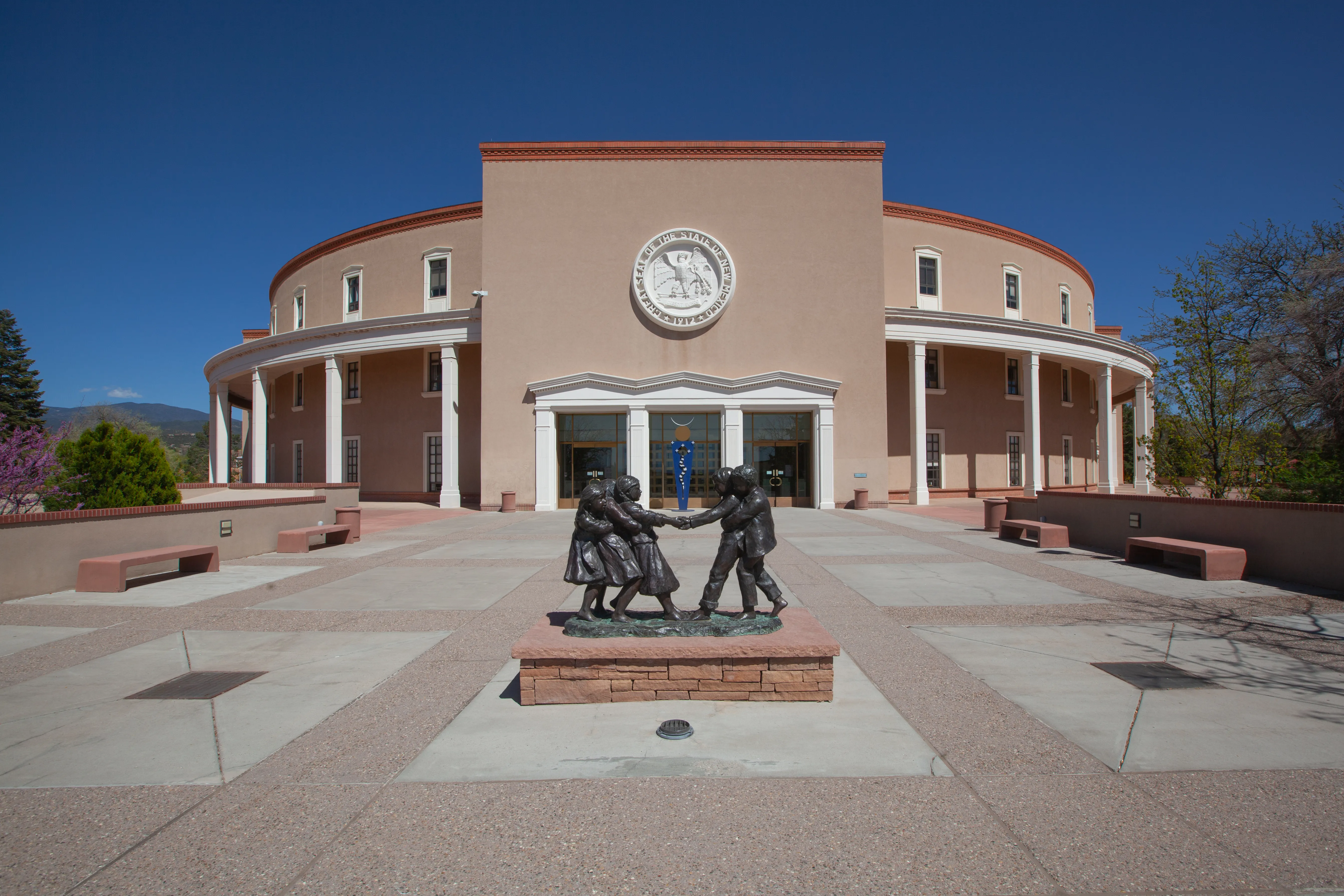
Federal judge extends order blocking Musk and DOGE from Treasury payment systems
A federal judge in New York Friday extended a temporary order blocking billionaire Elon Musk’s so-called Department of Government Efficiency from accessing the Department of Treasury’s payment systems that track, disburse and collect trillions each year, according to media reports.
U.S. District Judge Jeannette A. Vargas continued the February 8 order prohibiting the Department of Treasury from granting access to political appointees, special government employees and anyone else except civil servants who have passed necessary background checks, obtained security clearances and are trained in physical and statutory security of the system.

Remote media access for the hearing was not available.
Nearly 20 Democratic state attorneys general sued President Donald Trump, the Department of Treasury and Treasury Secretary Scott Bessent on February 8 for opening the department’s payment infrastructure to Musk’s DOGE personnel. They included a tech company CEO and a 25-year-old software engineer who worked for Musk.
The attorneys general said in a statement ahead of the hearing they were seeking a preliminary injunction Friday to continue a prohibition on access to the Treasury Department’s payment system. Vargas did not rule yet on that request.
Vargas was nominated by former President Joe Biden in March 2024 and confirmed by the Senate in September.
The DOGE personnel gained access to the systems less than two weeks into Trump’s second term, according to numerous reports and court records.
Those who were able to see into the system included Cloud Software Group, Inc. CEO Tom Krause and Elez Marko, a software engineer who worked at SpaceX and X and who reportedly had administrative access to alter it. Krause claimed in a recent court filing that he only ever had “over the shoulder” access to read the system.
Marko resigned February 6 following revelations that he published numerous racist comments on social media as recently as the latter half of 2024.
Concerns about sensitive information
The attorneys general argued Trump, Bessent and the Treasury Department violated the Constitution as well as numerous statutes in place to protect sensitive data when they allowed the special government employees into the system.

Elon Musk - Public Domain
The officials, led by New York Attorney General Letitia James, alleged in a 60-page complaint that DOGE’s access allows payments to be pulled from “disfavored beneficiaries” and poses risks for state governments and residents.
“The States have not received even basic information about whether sensitive information is being shared with third parties and how that information is being used. Concerned residents have turned to state agencies for guidance, directly impacting state resources, despite having no more information than the residents,” they argued.
“DOGE’s access of (Treasury) records puts vast amounts of funding for the States and their residents in peril and endangers the (personal identifying information) of States’ residents whose information is stored on the payment systems,” according to the complaint.
Attorneys general from Arizona, California, Colorado, Connecticut, Delaware, Hawaii, Illinois, Maine, Maryland, Massachusetts, Minnesota, Nevada, New Jersey, North Carolina, Oregon, Rhode Island, Vermont and Wisconsin joined the lawsuit filed in the U.S. District Court for the Southern District of New York.
Social Security, federal grants and more
The payment system processed 1.3 billion payments in fiscal year 2023, totalling $5.4 trillion, according to the Bureau of the Fiscal Service.
Just some of the payments that flow through it include Social Security benefits; veteran’s disability compensation; federal grants to states and territories that fund natural disaster relief and programs like Medicaid, the Special Supplemental Nutrition Program for Women, Infants and Children; and Pell Grants to private universities.
This means the bureau’s system holds direct deposit information for tens of millions of Americans, bank account numbers for doctor’s offices and nonprofit organizations that provide Medicaid services, and sensitive information from private businesses that contract with the government.

Former Treasury Department officials warned in an amicus brief Friday filed in support of the state attorneys general that “DOGE access poses serious risks to the integrity of the federal payment systems.” The access, they wrote in the 30-page brief, opens avenues for politically motivated illegal withholding of payments and creates security risks for Americans’ data and the system on multiple fronts.
“Businesses securing government contracts should not have to weigh the risk that their sensitive information will be inappropriately viewed by political appointees who might have close relationships with competitors — or, in the case of special government employees like those at DOGE, still have financial interests in those competitors themselves,” the 10 former officials wrote.
The former officials point out the “acute” nature of the concern, given that among DOGE personnel given access to the system is an unpaid special government employee who retains his role as CEO of a private company.
In a joint letter filed Thursday by both parties, as ordered by Vargas, Trump, Bessent and Treasury officials argued that the state attorneys general have “no valid legal ground” to block access to the system.
“All employees of the Treasury Department, career and political alike, are charged with implementing the President’s policy objectives,” they argued. “The (temporary restraining order) currently in place causes ongoing constitutional harm to Treasury’s ability to make management decisions within its lawful discretion regarding its own technological systems, and on the Executive’s prerogative to pursue its publicly stated priorities.”
Iowa’s Republican Attorney General Brenna Bird and 19 other state attorneys general filed an amicus briefarguing that the Constitution grants presidents the authority to control the operations of executive branch agencies, including who does or doesn’t have access to the Treasury payment system.
Attorneys general joining Bird on the brief represent Alabama, Arkansas, Florida, Georgia, Idaho, Indiana, Kansas, Louisiana, Mississippi, Missouri, Montana, Nebraska, North Dakota, Ohio, Oklahoma, South Carolina, South Dakota, Texas and Utah.
“At its core, this case involves an attempt by the President’s political opponents to dictate which employees of the Executive Branch can access computer systems belonging to an Executive Branch agency. The Court should deny that relief, which would involve an unprecedented breach of the separation of powers,” according to the brief.
Lawsuits multiply
The lawsuit filed in federal court in New York is among scores of legal challenges piling up against Musk and Trump.
February 13, 14 Democratic state attorneys general and 26 current and former government employees filedtwo separate lawsuits against the administration, and Musk, alleging DOGE had violated the Constitution.
February 3 two large unions and an alliance that together represent millions of government and retired workers sued Bessent for allowing DOGE’s “massive and unprecedented” intrusion into Americans’ personal data contained in the payment systems.
Musk has lashed out on his social media platform X against federal judges who have issued orders blocking some of the Trump administration’s actions.
DOGE is not actually a government department, as only Congress has the authority to create new federal agencies. Trump established the U.S. DOGE Service on his first night in office via executive order, and created the entity as a temporary organization with the purposes of modernizing government technology.
Musk’s estimated wealth is $379 billion, according to Bloomberg’s billionaire index cited by the government employee plaintiffs. Musk owns Tesla, SpaceX, Neurolink, xAI and X, formerly known as Twitter. During the 2024 presidential election cycle, Musk was the top donor to Trump and Republicans at $288 million.
As of October, Musk had more than $15 billion in U.S. government contracts across nine cabinet departments and three independent agencies, according to a New York Times analysis.
Colorado Newsline is part of States Newsroom, a nonprofit news network supported by grants and a coalition of donors as a 501c(3) public charity. Colorado Newsline maintains editorial independence. Contact Editor Quentin Young for questions: info@coloradonewsline.com.

















